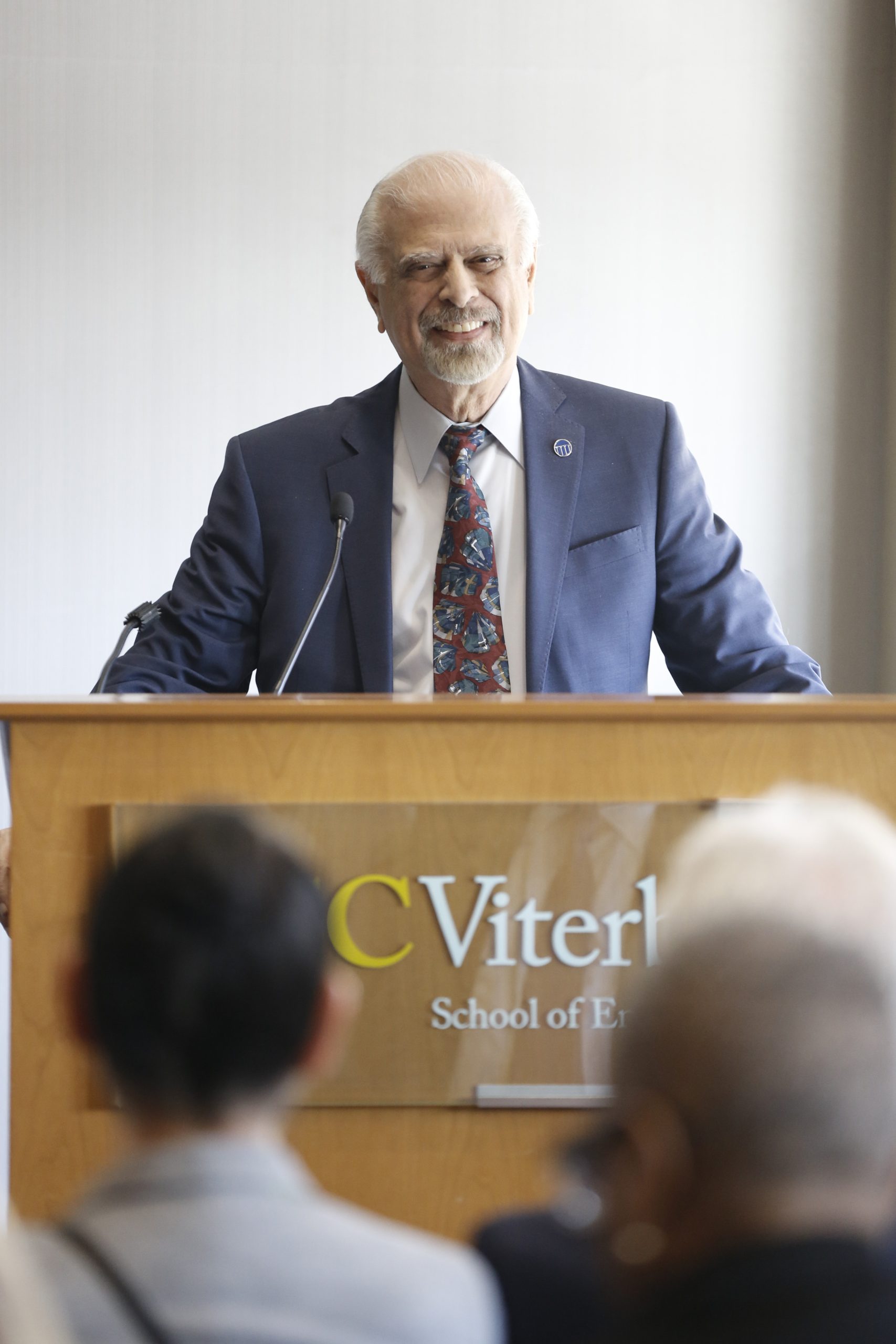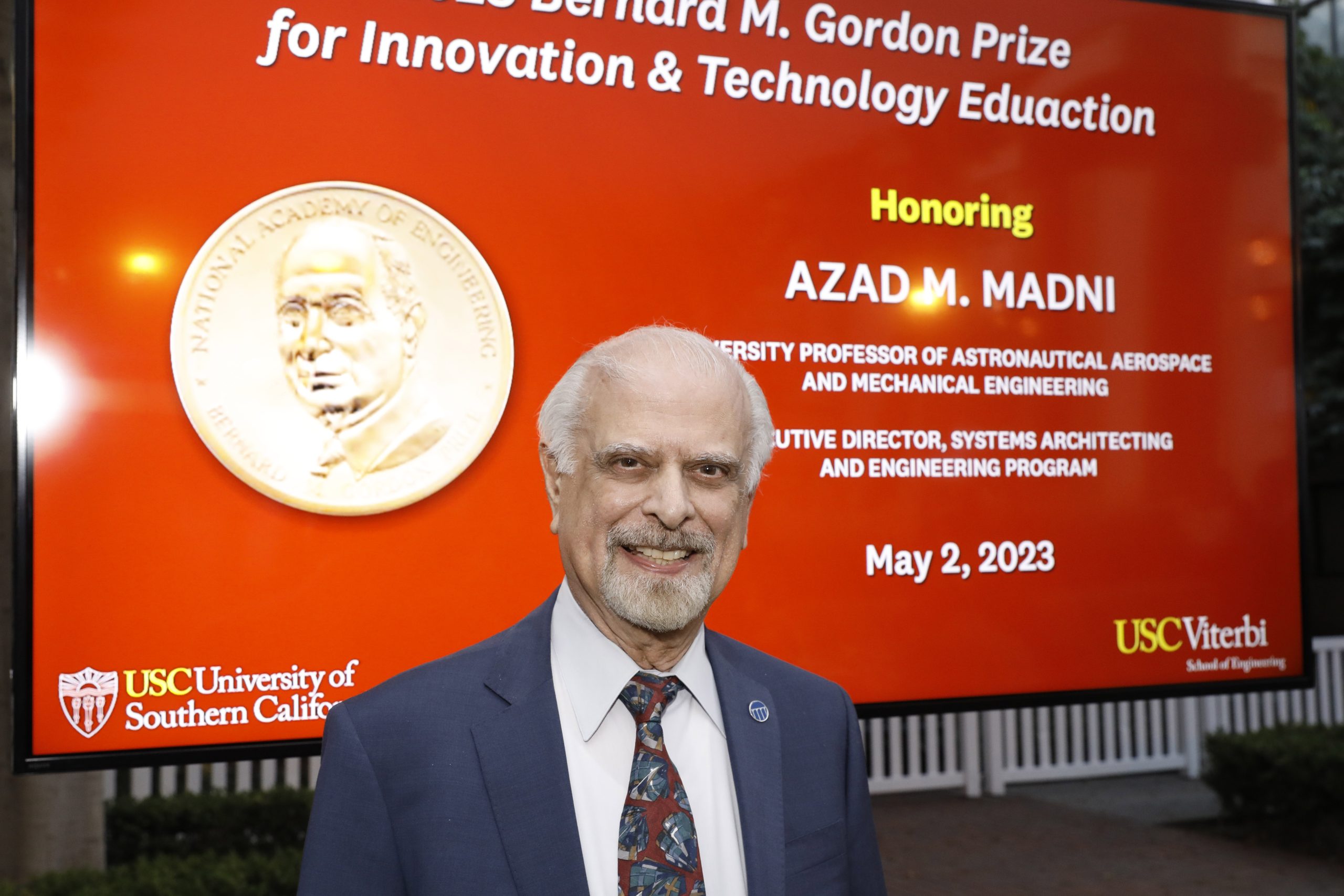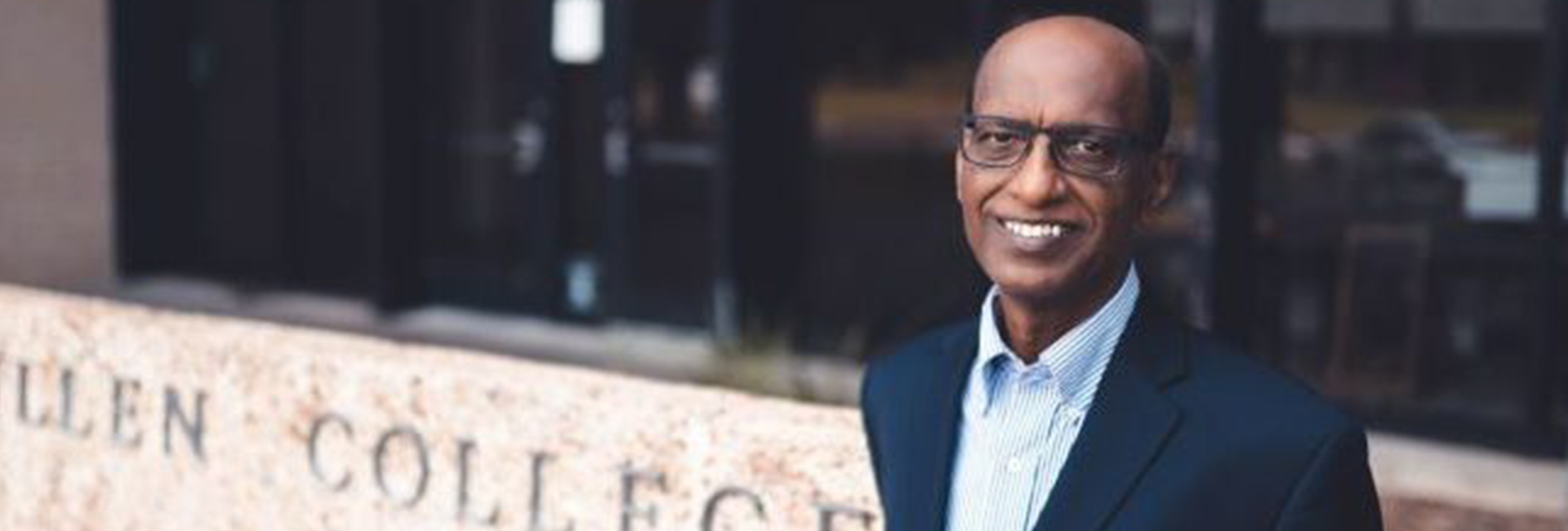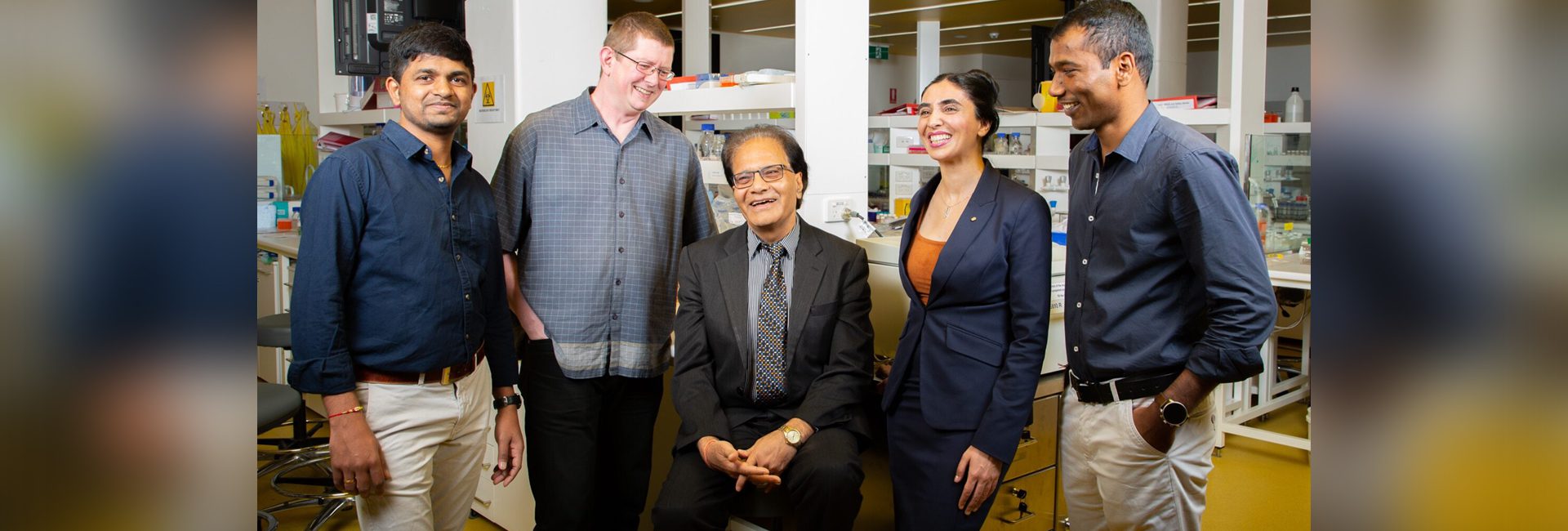(January 4, 2024) “We choose to go to the moon. We choose to go to the moon in this decade and do the other things, not because they are easy, but because they are hard, because that goal will serve to organise and measure the best of our energies and skills, because that challenge is one that we are willing to accept, one we are unwilling to postpone, and one which we intend to win, and the others, too.”
President John F. Kennedy’s words inspired millions of Americans the day he made this speech at Rice University in the September of 1962. But who would have imagined that a young boy sitting by the radio in his house in Bombay, India, would be so inspired by this speech that he would decide to become an aerospace engineer, and go on to win the prestigious Bernard M. Gordon Prize for Innovation in Engineering and Technology Education – often referred to as the ‘Nobel Prize of Engineering Education‘.
“President Kennedy’s speech really fascinated me,” shares Dr. Azad Madni, as he connects with Global Indian for an exclusive interview, adding, “I too wanted to contribute something to the aerospace industry, and that’s what motivated me to pursue a career in this field. I have worked for Rockwell International Space Shuttle, which was NASA’s first, manned, re-usable spacecraft. And today, I have several aerospace engineers under my guidance at the University of Southern California.”
The flight to the USA
A Bombay lad, Dr. Madni was always fascinated by how things around him worked. But, while he loved to learn, the aerospace engineer’s father was more interested in how were things being taught at his school. “My father was very interested in my education, right from the beginning. I remember, he would just show up at my school, St. Mary’s High School, and would enquire about how various subjects were being taught to us. He wanted to ensure that I did not just get the knowledge from the books, but also by engaging with the equipments or machines directly,” he says, adding that this influenced his life path a lot. “The Gordon Prize is all about education. My father’s quest to make sure that I got practical knowledge of things had a big impression on me. Now that I am a teacher, I too ensure that my students get more than what is written in the books,” laughs the engineer.
Playing with his erector set in the backyard, Dr. Madni never thought that one day he would be using his toys to teach several young students. “I used to play a lot with the erector set and build airplanes, buses, and trucks. Back then I did not realise how important that was in developing critical thinking and creative skills that can help you in later life,” Dr Madni says. Now, he encourages hands-on learning his classroom too, using Digital Twins, a “virtual replica of the physical system for people to experiment with, explore, and learn how the system behaves. And that all had its roots in the early hands-on learning that I had with the erector set,” shares the engineer.
He was in school when President Kennedy made his famous speech ‘We Choose to Go to the Moon’, and it was then that he decided that he would move to the United States of America, so after finishing his intermediate. “That was the only goal back then – to study in the USA. So, I moved to the country in 1965. Back then, India and the USA were very different worlds, and not many Indians chose to come to the USA,” shares the engineer, who has also authored several books.
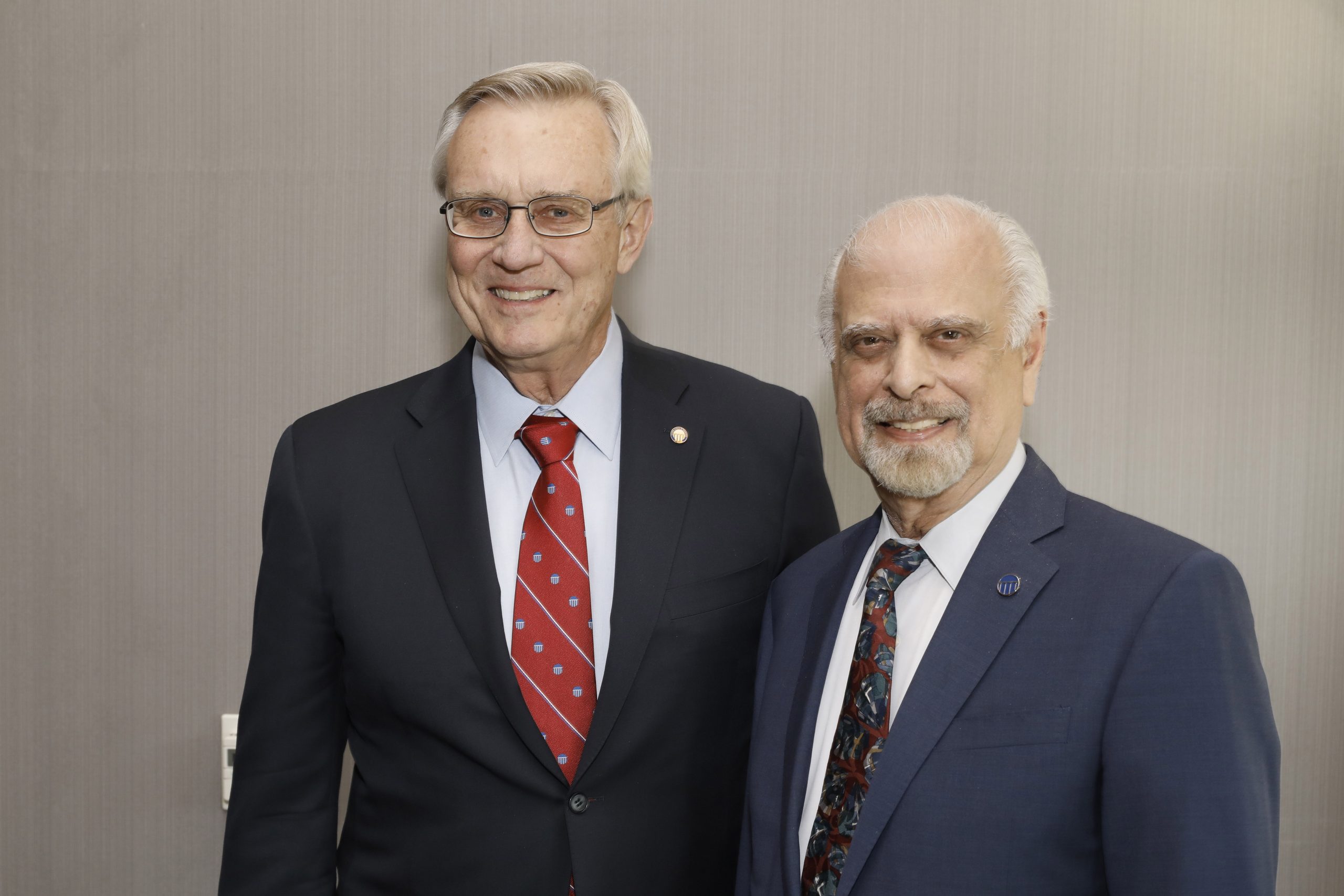
Dr. Madni with the President of the National Academy of Engineering
Pursuing a bachelor’s in engineering at the University of California, Los Angeles (UCLA), Dr. Madni didn’t face much problem adjusting after arriving in the US. However, “I couldn’t get used to the American food. I missed Indian food so much,” he laughs. Dr. Madni went on to pursue a master’s and later earned a Ph.D. from UCLA for his work in the fields of engineering systems, computer methodology, and AI.
A scholarly journey
The year that Dr. Madni finished his graduation was the same year that Neil Armstrong first set foot on the lunar soil. However, as the US rejoiced, Dr. Madni faced new challenges. “Well, the plan was to find a job soon after graduation and start earning. However, it was a challenging period for the country facing an economic downturn. A few of my friends, who studied with me, gave up looking for a job and went into selling real estate or working in restaurants,” he shares. Even though things looked bleak, Dr. Madni decided to stay the course. “The thing was, while I was studying, I lost my father and had responsibilities towards my family back in India. I had to earn.” It took him a while but he found his first job as an engineer, starting his career in the USA. “While I was pursuing my doctorate, I was interviewed by Rockwell International and soon started working on NASA’s space shuttle programme. So, it was kind of dream-come-true moment for me.”
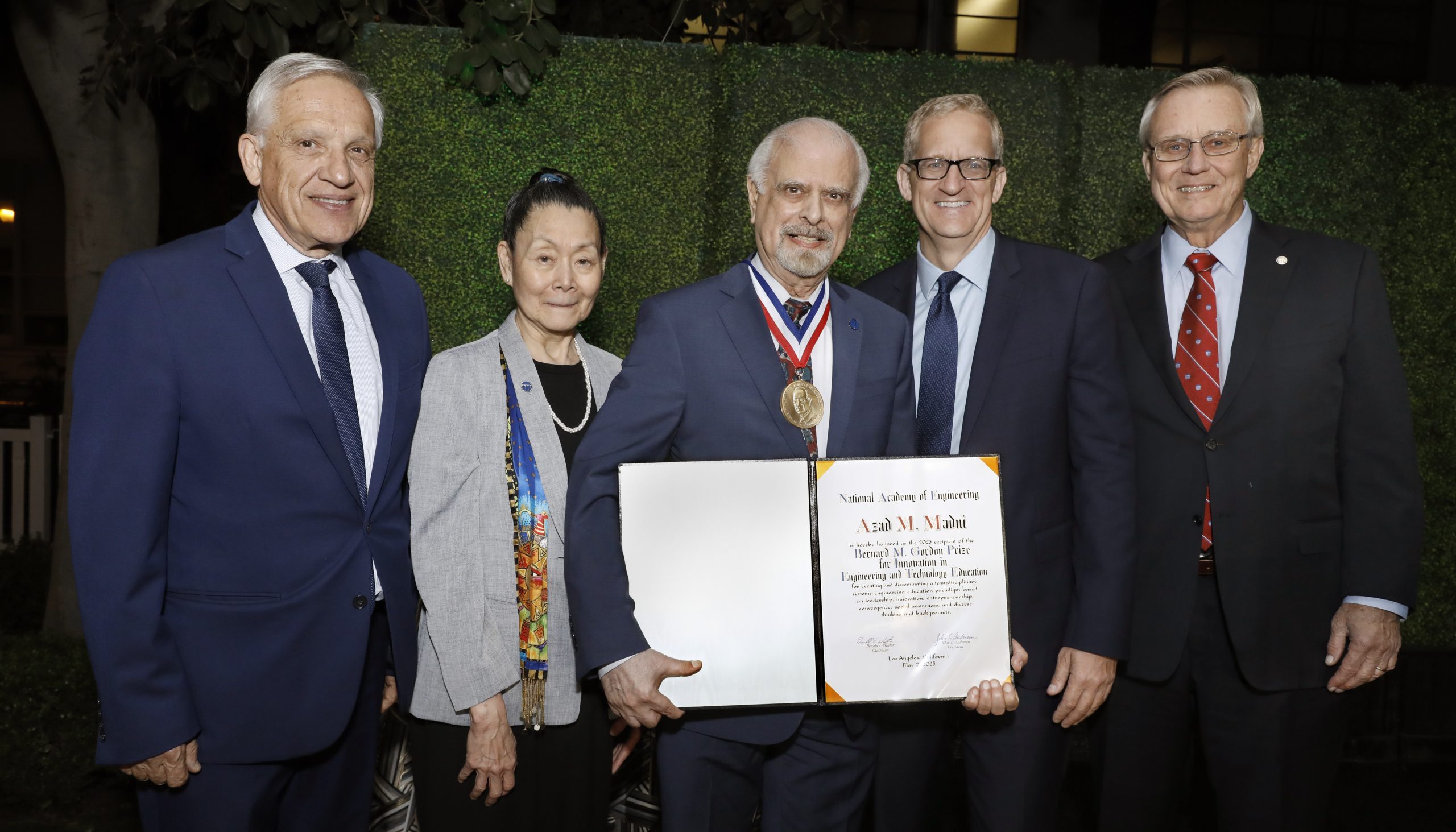
Dr. Madni accepting the prestigious Bernard M. Gordon Prize
In 1994, the engineer also founded a company – Intelligent Systems Technology, Inc, which is an award-winning hi-tech company specialising in model-based approaches for addressing scientific and societal problems of national and global significance. “The idea is to advance the field of augmented intelligence and human-machine teaming to maximise the joint performance of human-machine teams,” he shares.
But then, how does someone with so much industrial experience move to academia? “My company’s success was possibly one of the reasons why the University of Southern California approached me to take over one of their flagship programmes, Systems Architecting and Engineering. So, I have been teaching since 2006-07 academic year,” he says. Dr. Madni is currently USC’s most accomplished multidisciplinary faculty with significant achievements across multiple technical fields. He holds the Northrop Grumman Fred O’Green Chair in Engineering and has received many awards for his contributions. He is a member of the National Academy of Engineering and a Fellow of IEEE. Dr. Madni has led 97 research projects and received over $100 million in funding from government agencies and companies like NASA, NIST, Boeing, and General Motors.
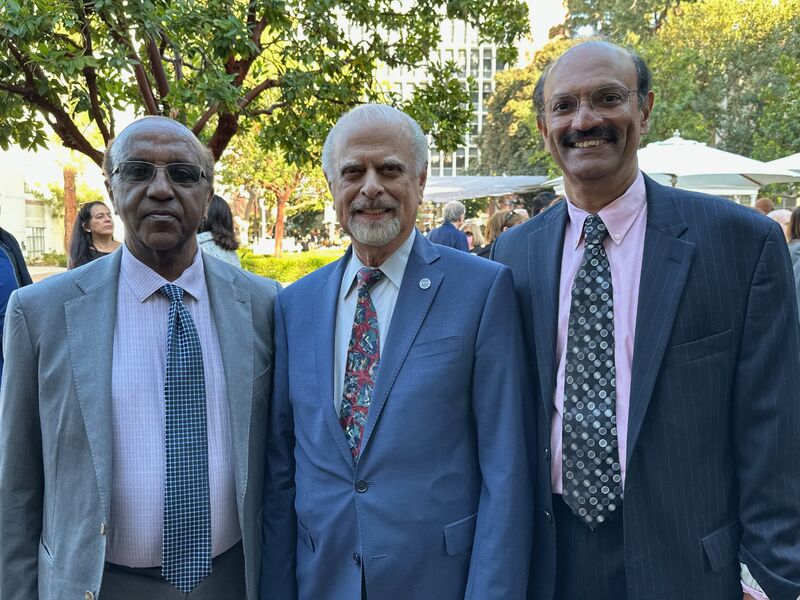
Dr. Madni with his colleagues, Dr. Ram Sriram and Dr. Dereje Agonafer at USC
A recipient of over 100 awards, including the most recent 2023 NAE Gordon Prize, the AIAA/ASEE Leland Atwood Award for excellence in engineering education and research, the 2019 ASEE/INCOSE Outstanding Systems Engineering Educator Award, and the 2013 IISE Innovation in Curriculum Development Prize, Dr. Madni shares that he is far from retirement still. “Currently, I am working on several research projects, including autonomous self-driving cars, unmanned aerial vehicles, and game-based simulations for STEM education. These researches will take me at least six to eight years and are being funded by both the government and private sector.”
But the engineer is not just an academician. Dr. Madni has a rich history of giving back and has been honoured with various awards for his charitable efforts. In 2021, he was presented with the Benefactor Award by the International Council on Systems Engineering (INCOSE) in recognition of his many years of philanthropy and mentorship to engineering students worldwide. This marked only the second time in 31 years that INCOSE granted this award. In 2020, he was also honoured with the IEEE-USA Entrepreneurship Achievement Award for his lifetime of contributions to innovation, mentorship, and philanthropy. Additionally, he holds life memberships in the NAE Marie Curie Donor Society and the NAE Albert Einstein Donor Society.
Also Read: Bijoy Jain: The architect breathes new life into sustainable design
Also Read: Abhi Ramesh: Fighting food deserts through Misfits Market


